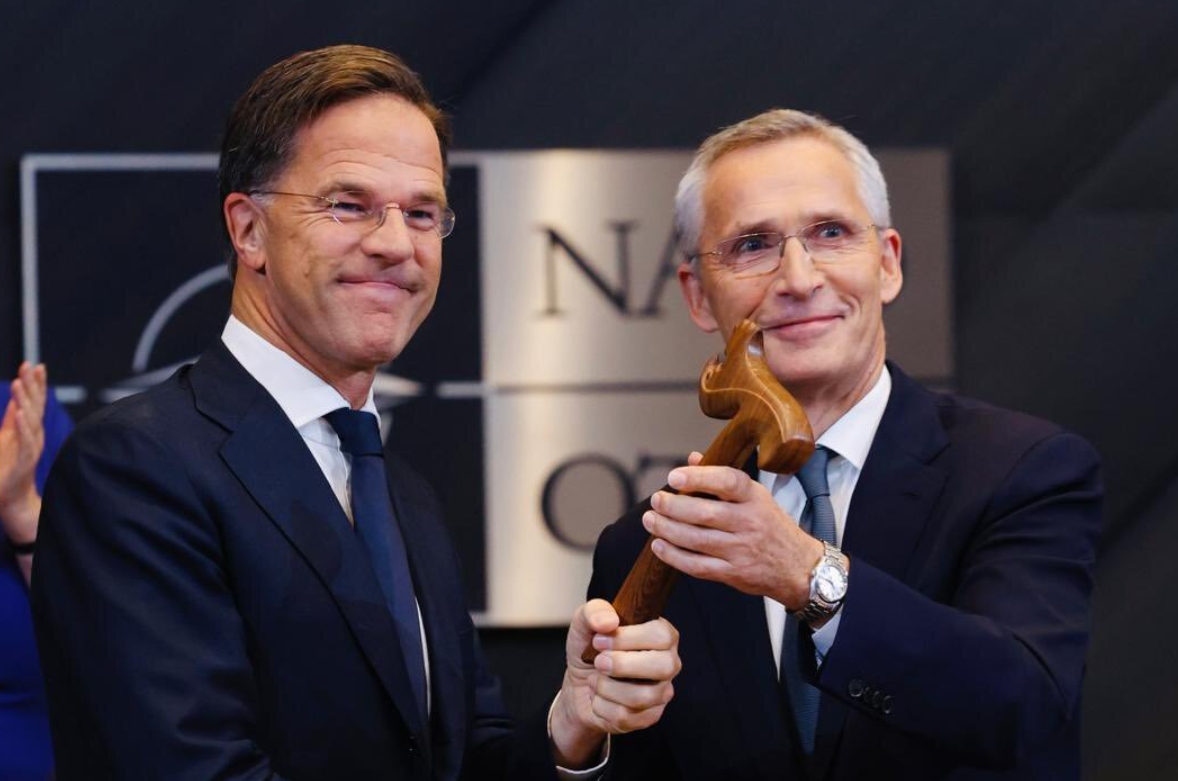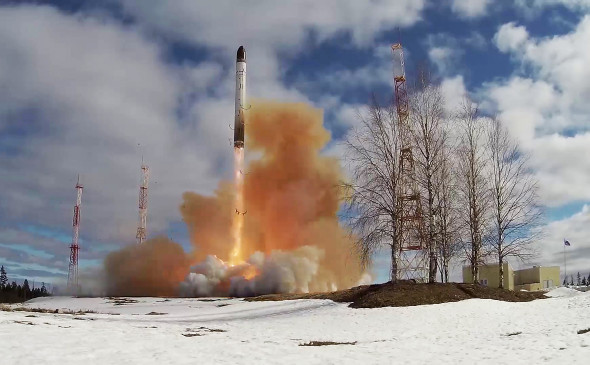NATO to hold Steadfast Noon nuclear exercise in October
10 October, 2024 An F-15E launched a B61-4 nuclear bomb without a warhead. Photo credits: Sandia National Laboratories NATO will start its annual nuclear exercise on Monday.
It will take place in Belgium, the Netherlands, and other countries. NATO Secretary General Mark Rutte announced this, quoted by Reuters. "In an uncertain world, it is vital that we test our defense and that we strengthen our defense so that our adversaries know that NATO is ready, and is able to respond to any threat.
The whole exercise will particularly focus on the United Kingdom, the North Sea, but also Belgium and the Netherlands," Rutte said. The exercise does not use any live weapons. But some 2,000 military personnel participating in the drills will simulate missions in which warplanes carry U.S. nuclear warheads, officials said.
The exercise will start on Monday and last for about two weeks.
 Rutte and Stoltenberg, October 1, 2024. Photo credits: NATO
Rutte and Stoltenberg, October 1, 2024. Photo credits: NATO
Meanwhile, NATO officials stressed its exercise was not a response to any recent declarations from Russia. According to Angus Lapsley, NATO's assistant secretary general for defense policy and planning, Steadfast Noon is important to demonstrate NATO's nuclear capabilities and deter against any attack.
"We seek to deter any adversaries, and principally Russia, in several different ways, including conventional deterrence," Lapsley told reporters at NATO headquarters in Brussels. Since the outbreak of full-scale war, nuclear threats from Russia and Belarus have become particularly pronounced. The Kremlin is trying to intimidate the West by emphasizing its strategic nuclear capabilities, especially in light of the increased military support for Ukraine by Western powers.
Only recently, dictator Vladimir Putin announced changes to Russia's nuclear doctrine that would expand the conditions for the use of its nuclear arsenal.
 The Sarmat missile.
The Sarmat missile.
Photo from open sources
The dictator was followed by Alexander Lukashenko, who also started to threaten the West with nuclear weapons.
In September, Russia failed new tests of the RS-28 Sarmat intercontinental ballistic missile.